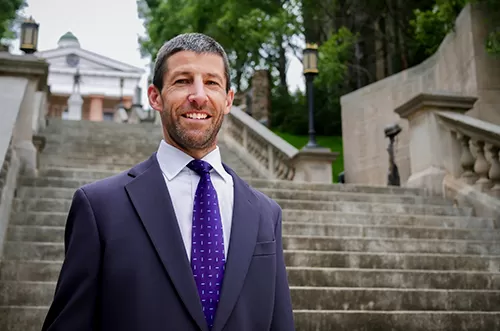W.C. English v. Rummel, Klepper, and Kahl, LLP, 2018 U.S. Dist. LEXIS 36158 (W.D. Va. Mar. 6, 2018)
The Virginia Department of Transportation (“VDOT”) and W.C. English, Inc. (“English”) entered into a contract for the construction of a bridge over Interstate 81. English was responsible to VDOT for designing and constructing the bridge to certain specifications. Per its contracts with other parties, English was required to build the bridge in accordance with its subcontractor AECOM’s approved plans and any change to the bridge design was to be approved through written requests submitted to AECOM, who then ensured the revision met VDOT standards.
To assist with its construction, English entered into subcontracts with two inspectors: (1) Rummel, Klepper & Kahl, LLP (“RK&K”); and (2) CDM Smith, Inc. (“CDM”). The subcontract with RK&K required it to provide “quality assurance services,” which involved inspecting whether construction of the project conformed with the contract documents and VDOT’s standards and to keep written documentation of the inspections, including the indemnification of any potential quality and non-conforming work issues. RK&K had the authority to advise VDOT not to pay English if the project was not in conformity with the plans. The subcontract with CDM required it to provide quality control services, which involved measuring “quality characteristics” and inspecting construction to make sure work conformed to the plans and regulations. Taken together, the two subcontracts created a hierarchy: English retained ultimate responsibility, RK&K oversaw inspection, and CDM fell under both RK&K’s and English’s leadership.
VDOT regulations and the bridge’s design required steel reinforcement that would be covered by concrete. English started out using conforming slab runners (steel reinforcements), but switched to nonconforming ones about half way through construction. This switch was the source of the non-conformity that forced English to replace the bridge. CDM’s inspector provided written notification to English of the problem with the spacing above the steel reinforcement, and verbally discussed the problem with English’s foreman and RK&K. RK&K raised similar concerns about the spacing of the slab runners with English, but did not file a written report of any non-conformance. CDM and RK&K both believed English had cured their concerns before the concrete was poured for the bridge deck. English moved forward and poured over the steel reinforcement. After the bridge was largely finished, VDOT conducted an inspection and rejected the bridge as non-conforming. English rebuilt the bridge under protest, denying that there were any structural problems. English and VDOT settled, with English receiving a reduction in the amount of liquidated damages assessed by VDOT.
The Court granted RK&K’s motion for summary judgment on English’s complaint and RK&K’s counterclaim. English was not entitled to damages because the terms of the subcontract demonstrated that RK&K was exempt from liability if English was negligent. Furthermore, the parties did not dispute that English never paid RK&K for its final invoices.
English and RK&K had exchanged competing term sheets as the basis for their subcontract and the parties had not clarified which term sheet governed the relationship. Under English’s term sheet, RK&K was liable for damages “to the extent directly caused by the negligence of [RK&K] but not to the extent caused by the acts or omissions of [English].” The Court found that there was no genuine dispute that English’s negligence (failing to follow the contract documents after being notified) was the cause of its own injury, which absolved RK&K of both contractual and indemnity liability.
Unlike the RK&K term sheet, CDM’s subcontract did not contain the handwritten “directly” language. CDM’s contractual duty to indemnify English, therefore, did “not arise if such [damage] is caused by the sole negligence of” English. Likewise, CDM did not owe contractual damages to English unless English’s injures resulted “from the operations of [CDM].” The Court determined that, under the subcontract, CDM was required to notify an English foreman, note the issue in its diary, and turn the issue over to RK&K, who would then take the lead (although RK&K and CDM were to re-inspect before RK&K would allow English to receive payment from VDOT). The Court held that CDM was entitled to summary judgment because a reasonable jury would be required to find that CDM fulfilled its contractual obligations and that English’s damages arose out of its sole negligence.




